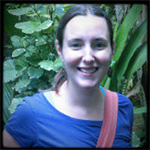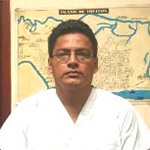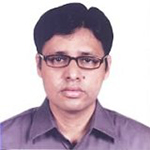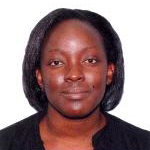GloCal Fellows 2012-2013
Kassandra Harding, UC Davis
 Kassandra Harding is a doctoral student of the Graduate Group in Nutritional Biology at the University of California, Davis. She is also pursuing a designated emphasis in the Program in International and Community Nutrition. The unique challenges associated with devising effective, sustainable, and culturally acceptable interventions to improve nutrition among diverse populations have led her to pursue a career in global health. From study design to the everyday challenges of implementation at the field level, she enjoys solving the puzzles of global health research. Upon completing her doctoral training, she aims to collaborate with international organizations to conduct novel clinical and translational research to address nutritional problems in disadvantaged populations.
Kassandra Harding is a doctoral student of the Graduate Group in Nutritional Biology at the University of California, Davis. She is also pursuing a designated emphasis in the Program in International and Community Nutrition. The unique challenges associated with devising effective, sustainable, and culturally acceptable interventions to improve nutrition among diverse populations have led her to pursue a career in global health. From study design to the everyday challenges of implementation at the field level, she enjoys solving the puzzles of global health research. Upon completing her doctoral training, she aims to collaborate with international organizations to conduct novel clinical and translational research to address nutritional problems in disadvantaged populations.
Project
Lipid-based nutrient supplement and iron/folic acid tablet intake among pregnant and lactating women in Bangladesh
In developing countries burdened with a high prevalence of stunting among children, nutritional supplementation during pregnancy has been studied as one approach to improve prenatal nutrition and intrauterine growth to ultimately improve growth outcomes in children. In order to understand the effectiveness of lipid-based nutrient supplements (LNS) in this programmatic context, it is necessary to identify the barriers and facilitators to LNS consumption. With the support of the UCGHI GloCal Health Fellowship, Ms. Harding will assess environmental, cultural, and personal factors that influence rural Bangladeshi women's consumption of LNS and iron and folic acid (IFA) tablets provided by an established community health and development program. With several perinatal nutrition supplementation programs presently rolling out in rural Bangladesh, it is crucial to define and address factors that will impact the success of these programs.
Mentors: Dr. Christine Stewart (UCD), Dr. Tahmeed Ahmed (ICCDR, B), Dr. Lia Fernald (UCD)
Sarah Rojas, UC San Diego
 Sarah Rojas is currently a 4th year medical student at UCSD's School of Medicine. Prior to medical school, Sarah co-authored several papers with the HIV Neurobehavioral Research Center. As a medical student, Sarah has been honored as an Arnold P Gold Foundation's Gold Humanism Society member, after exemplary work demonstrating excellence of clinical care, leadership, compassion and dedication to service. She also founded the School of Medicine's first Mentorship Program, which links medical students to under-represented undergraduates interested in pursuing medicine as a career. As part of the PRIME-Health Equities M.D./Master's degree joint program, Ms. Rojas is now completing a Master's in Advanced Studies in Clinical Research at UCSD with a primary focus on Global Health. Her personal interests include reading current medical literature, especially work which addresses the unique challenges and successes of underserved populations in the fields of primary care, the uninsured, family medicine and HIV.
Sarah Rojas is currently a 4th year medical student at UCSD's School of Medicine. Prior to medical school, Sarah co-authored several papers with the HIV Neurobehavioral Research Center. As a medical student, Sarah has been honored as an Arnold P Gold Foundation's Gold Humanism Society member, after exemplary work demonstrating excellence of clinical care, leadership, compassion and dedication to service. She also founded the School of Medicine's first Mentorship Program, which links medical students to under-represented undergraduates interested in pursuing medicine as a career. As part of the PRIME-Health Equities M.D./Master's degree joint program, Ms. Rojas is now completing a Master's in Advanced Studies in Clinical Research at UCSD with a primary focus on Global Health. Her personal interests include reading current medical literature, especially work which addresses the unique challenges and successes of underserved populations in the fields of primary care, the uninsured, family medicine and HIV.
Project
Prevalence and Correlates of HIV Infection and Barriers to HIV Testing among Patients attending a Free Clinic in Tijuana, Mexico
Mexico's nationwide HIV prevalence is low (0.3%), but some sub-groups living in the border region of Mexico show great disparity. HIV prevalence ranges from 1% among pregnant women up to 15-20% among men who have sex with men. As HIV prevalence estimates lack outside specific subgroups, this cross-sectional study of Tijuana clinic patients will examine the prevalence and correlates of HIV infection. This study will then determine the proportion of patients who have not been HIV-tested and identify correlating barriers, such as stigma, lack of HIV awareness, or missed testing opportunities.
Mentors: Dr. Victoria Ojeda (UCSD), Dr. Jose Luis Burgos (UCSD), Dr. Adriana Vargas Ojeda (UABC)
Angela Bayer, UC Los Angeles
 Angela Bayer, PhD, MHS, has a BA in Sociology and Hispanic Studies from Harvard College and an MHS and PhD from the Johns Hopkins Bloomberg School of Public Health. She recently completed a Postdoctoral Fellowship with Dr. Thomas Coates at the UCLA Program in Global Health. Dr. Bayer's primary research interest is the development of multi-component interventions to prevent HIV and other sexually transmitted infections (STIs) among populations in situations of vulnerability in Latin America. In addition to her work on HIV prevention, Dr. Bayer has carried out several studies on public health issues that are relevant to global health and to Peru. She is also an Associate Researcher at the Universidad Peruana Cayetano Heredia School of Public Health, where she collaborates on research studies and teaches at the postgraduate level.
Angela Bayer, PhD, MHS, has a BA in Sociology and Hispanic Studies from Harvard College and an MHS and PhD from the Johns Hopkins Bloomberg School of Public Health. She recently completed a Postdoctoral Fellowship with Dr. Thomas Coates at the UCLA Program in Global Health. Dr. Bayer's primary research interest is the development of multi-component interventions to prevent HIV and other sexually transmitted infections (STIs) among populations in situations of vulnerability in Latin America. In addition to her work on HIV prevention, Dr. Bayer has carried out several studies on public health issues that are relevant to global health and to Peru. She is also an Associate Researcher at the Universidad Peruana Cayetano Heredia School of Public Health, where she collaborates on research studies and teaches at the postgraduate level.
Project
Skill-building to prevent HIV among male sex workers in Peru
Dr. Bayer's research will consist of a study to pilot and assess a Skill-building Program intervention for a neglected group in the Peruvian HIV epidemic — male sex workers. Specifically, the Skill-building Program will offer vocational training and HIV/STI prevention education within a supportive environment and safe space in order to prevent HIV and other STIs among male sex workers in central Lima. The study will also assess whether Skill-building Program beneficiaries report increased social cohesion with other male sex workers, less income from sex work and greater income from other sources, and decreased unprotected intercourse with clients.
Mentors: Dr. Thomas Coates (UCLA), Dr. Pamina Gorbach (UCLA), Dr. Patricia Garcia (UPCH)
Amanda Fenner, UC San Diego
 Midway through college as a biology major, Amanda Fenner realized her passion for chemistry in one of the most unlikely places: an organic chemistry class. Shortly after that class, she studied abroad in the Dominican Republic, learning Spanish and investigating the effect of token fees in public hospitals. While there, Dr. Fenner saw first-hand the need for new medications to treat neglected diseases and realized the potential to combine biology and chemistry toward meeting that need. Her career goal is to develop new drugs to treat neglected tropical diseases using natural products from these regions, with the goal of promoting both health and economic benefits in the host country. Recently she began postdoctoral research in Bill Gerwick's lab at Scripps Institution of Oceanography where she is currently engaged in several natural product isolation and structure elucidation studies.
Midway through college as a biology major, Amanda Fenner realized her passion for chemistry in one of the most unlikely places: an organic chemistry class. Shortly after that class, she studied abroad in the Dominican Republic, learning Spanish and investigating the effect of token fees in public hospitals. While there, Dr. Fenner saw first-hand the need for new medications to treat neglected diseases and realized the potential to combine biology and chemistry toward meeting that need. Her career goal is to develop new drugs to treat neglected tropical diseases using natural products from these regions, with the goal of promoting both health and economic benefits in the host country. Recently she began postdoctoral research in Bill Gerwick's lab at Scripps Institution of Oceanography where she is currently engaged in several natural product isolation and structure elucidation studies.
Project
Drug discovery from Panamanian marine cyanobacteria
During her time as a GloCal Fellow, Dr. Fenner will work on developing new drugs to treat diseases prevalent in Panama using natural products from Panama as lead compounds. The research will involve collection of cyanobacteria from Panamanian national parks using SCUBA diving and snorkeling. Cyanobacterial samples will be extracted in the lab at the Smithsonian Tropical Research Institute in Panama and tested at a local parasitology drug screening center. Simultaneously, the project will profile the extracts and fractions for interesting metabolites using NMR and LC-MS. The goal is to optimize drug-receptor interactions by replacing functional groups with bioisosteres, biologically similar functional groups, in order to improve the compound's potency, safety, or selectivity.
Mentors: Dr. William Gerwick (UCSD), Dr. Elizabeth Winzeler (UCSD), Dr. Phyllis Coley (U. of Utah)
Hilary Wolf, UC San Francisco
 Hilary Wolf is a Board Certified Pediatrician who is in her final year of pursuing a 3-year ACGME accredited Adolescent Fellowship at UCSF. In addition, last year Dr. Wolf joined the Reproductive Infectious Disease (RID) Fellowship in order to further pursue her specific interests and goals in conducting research with HIV+ adolescents in Kenya. Dr. Wolf is most interested in adolescent reproductive and global health. Dr. Wolf first worked with underserved HIV+ adolescents in Washington, DC as a case manager through an AmeriCorps program. She first pursued her interest in global health during medical school, at Albert Einstein, through a research fellowship in Lima, Peru. During her Pediatric residency at Mount Sinai, she continued to pursue her interest in global health but narrowed her focus to reproductive health research in adolescents. She performed a primary data collection project with Ugandan adolescents assessing their knowledge regarding STI's and contraception and their willingness to use contraception.
Hilary Wolf is a Board Certified Pediatrician who is in her final year of pursuing a 3-year ACGME accredited Adolescent Fellowship at UCSF. In addition, last year Dr. Wolf joined the Reproductive Infectious Disease (RID) Fellowship in order to further pursue her specific interests and goals in conducting research with HIV+ adolescents in Kenya. Dr. Wolf is most interested in adolescent reproductive and global health. Dr. Wolf first worked with underserved HIV+ adolescents in Washington, DC as a case manager through an AmeriCorps program. She first pursued her interest in global health during medical school, at Albert Einstein, through a research fellowship in Lima, Peru. During her Pediatric residency at Mount Sinai, she continued to pursue her interest in global health but narrowed her focus to reproductive health research in adolescents. She performed a primary data collection project with Ugandan adolescents assessing their knowledge regarding STI's and contraception and their willingness to use contraception.
Project
An Investigation of Causes of Lost to Follow-up among HIV Positive Adolescents in Kisumu Kenya
Dr. Wolf's multi-disciplinary collaborative group, based at the Kenya Medical Research Institute in Kisumu, Kenya and at UCSF will employ qualitative methods to explore: (1) the multi-level determinants why adolescents become lost to follow-up (LTFU) in Kisumu, Kenya and (2) the role the secondary school environment plays among HIV+ adolescents who are LTFU. Methods: conducting: (1) focus groups (FGs) with HIV+ adolescent peer educators who work with LTFU adolescents and are in care, (2) semi-structured interviews with HIV+ adolescents who are LTFU, and (3) semi-structured interviews with student-nominated teachers and administrators from local secondary schools. The purpose of these interviews and focus groups will be to better understand the barriers adolescents have in accessing HIV care and how the school environment may affect adolescents' ability to positively or negatively access and remain in care. Implications: Information regarding the multi-level determinants of LTFU among adolescents and specifically of the school-based environment will inform the development of interventions to improve the retention of Kenyan adolescents in healthcare.
Mentors: Dr. Craig Cohen (UCSF), Dr. Collete Auerswald (UCSF), Dr. Bonnie Halpern (UCSF)
Jesse Clark, UC Los Angeles
 Jesse Clark is an Assistant Professor-in-Residence in the Department of Medicine, Division of Infectious Disease of the UCLA Geffen School of Medicine. He studied Medicine at Albert Einstein College of Medicine and completed Internal Medicine Residency at Montefiore Medical Center and Fellowship training at UCLA. He is Director of Latin America Programs with the UCLA Program Global Health (PGH), and coordinates research activities of the PGH office in Lima, Peru. His current research focuses on new approaches to partner management among MSM in Peru as well as other community-based approaches to HIV/STI prevention in Latin America.
Jesse Clark is an Assistant Professor-in-Residence in the Department of Medicine, Division of Infectious Disease of the UCLA Geffen School of Medicine. He studied Medicine at Albert Einstein College of Medicine and completed Internal Medicine Residency at Montefiore Medical Center and Fellowship training at UCLA. He is Director of Latin America Programs with the UCLA Program Global Health (PGH), and coordinates research activities of the PGH office in Lima, Peru. His current research focuses on new approaches to partner management among MSM in Peru as well as other community-based approaches to HIV/STI prevention in Latin America.
Project
Partner Management Strategies for HIV/STI Control Among MSM in Peru
Dr. Clark's research addresses new strategies for notification and treatment of the sexual partners of men who have sex with men (MSM) and transgender women diagnosed with a sexually transmitted infection (STI) in Lima, Peru. Based on extensive formative research assessing current patterns of partner management, his work will evaluate two related themes: 1) The use of new notification technologies to promote partner notification among MSM diagnosed with syphilis; and 2) The effect of Patient-Delivered Partner Therapy on partner notification among MSM diagnosed with gonorrhea and/or chlamydia.
Mentors: Dr. Thomas Coates (UCLA), Dr. Robinson Cabello (UPCH), Dr. Willy Lescano (NAMRU-6)
Victoria Ojeda, UC San Diego
 Victoria D. Ojeda is an Assistant Professor in the Division of Global Public Health in the Department of Medicine at UC San Diego. Dr. Ojeda's research focuses on the health of underserved and vulnerable populations, including immigrants, Latinos, and women. Dr. Ojeda's current research focuses on substance use, HIV/AIDS, and mental health comorbidities, with a focus on migrant populations, including deportees, injection drug users and female sex workers. She is the principal investigator (PI) of a National Institute of Drug Abuse (NIDA) K01 Career Development award which focuses on the intersection of substance use, HIV, and migration in female sex workers in Tijuana, Mexico. Dr. Ojeda also recently led a study funded by the California HIV/AIDS Research Program (CHRP) that examined the relationship between deportation and substance use and HIV risk behaviors in a cohort of Mexican male injection drug users who were deported from the U.S. In addition, Dr. Ojeda is the PI of a qualitative study investigating the life and substance use histories of males and females who were deported from the U.S. and potential factors that may elevate participants' risk for HIV.
Victoria D. Ojeda is an Assistant Professor in the Division of Global Public Health in the Department of Medicine at UC San Diego. Dr. Ojeda's research focuses on the health of underserved and vulnerable populations, including immigrants, Latinos, and women. Dr. Ojeda's current research focuses on substance use, HIV/AIDS, and mental health comorbidities, with a focus on migrant populations, including deportees, injection drug users and female sex workers. She is the principal investigator (PI) of a National Institute of Drug Abuse (NIDA) K01 Career Development award which focuses on the intersection of substance use, HIV, and migration in female sex workers in Tijuana, Mexico. Dr. Ojeda also recently led a study funded by the California HIV/AIDS Research Program (CHRP) that examined the relationship between deportation and substance use and HIV risk behaviors in a cohort of Mexican male injection drug users who were deported from the U.S. In addition, Dr. Ojeda is the PI of a qualitative study investigating the life and substance use histories of males and females who were deported from the U.S. and potential factors that may elevate participants' risk for HIV.
Project
Social Incorporation Following Deportation and Implications for Health Status and Access to Care
Dr. Ojeda's work will focus on the forced expulsion, commonly known as 'deportation', of Mexican migrants from the United States as a long-standing practice. Migrants often experience economic and social vulnerabilities that affect their health status and relationships with the healthcare system; potentially, Mexican deportees are no different in this regard. This pilot study aims to: (1) identify appropriate measures of social incorporation for deportees seeking free healthcare in Tijuana, Mexico; (2) develop profiles of social incorporation; (3) assess relationships between social incorporation and deportees� health status and access to care; and (4) explore the role of public policy in shaping migrant health.
Mentors: Dr. Adriana Carolina Vargas Ojeda (UABC), Dr. Li Li (UCLA), Dr. David Fitzgerald (UCSD)
Raul Chuquiyauri, Universidad Peruana Cayetano Heredia
 Raul Chuquiyauri graduated from medical school in 2003 from the Universidad Peruana Cayetano Heredia. As a medical investigator he performed tuberculosis, malaria, and leptospirosis research for four years before starting his doctoral and master studies at San Diego State University/UC San Diego. In 2009, he returned to Peru to continue work on malaria transmission in the Peruvian Amazon. His next step is identifying potential targets for transmission blocking vaccine development using protein arrays.
Raul Chuquiyauri graduated from medical school in 2003 from the Universidad Peruana Cayetano Heredia. As a medical investigator he performed tuberculosis, malaria, and leptospirosis research for four years before starting his doctoral and master studies at San Diego State University/UC San Diego. In 2009, he returned to Peru to continue work on malaria transmission in the Peruvian Amazon. His next step is identifying potential targets for transmission blocking vaccine development using protein arrays.
Project
Malaria transmission in frontier settings in the Amazon Region of Peru
Dr. Chuquiyauri will conduct a research project focusing on critical new genomic-based approaches to studying malaria transmission-blocking immunity. This project is novel in that it will provide highly defined insights into the understanding of malaria transmission dynamics in distant settings where transmission may be driving continued transmission in more proximal village settings. A source of these findings could potentially be the migrant (external and internal migration) laborers (agriculturists, loggers, fisherman, charcoalers, etc.) There is a lack of information from studies performed at villages where the migrants travel. Thus, obtaining this information is critical for informing plans to deploy current and future anti-malaria efforts.
Mentors: Dr. Joseph Vinetz (UCSD), Dr. Alejandro Llanos Cuentas (UPCH), Dr. Kimberly Brouwer (UCSD)
Malay Kanti Mridha, International Center for Diarrheal Disease Research, Bangladesh
 Malay Kanti Mridha is currently working as a Research Associate at the Center for Reproductive Health at the International Center for Diarrheal Disease Research, Bangladesh (ICDDR, B). He is also the Coordinator of the Maternal and Reproductive Nutrition Research Group. After his graduation as a medical doctor from Chittagong Medical School in Bangladesh, he studied nutrition, health economics and public health. He worked for various organizations including BRAC, Bangladesh Women�s Health Coalition, Diabetic Association of Bangladesh, HIV/AIDS and STD Alliance, Bangladesh, Concern-Worldwide and University of California, Davis. He is currently implementing the Rang-Din Nutrition Study, a cluster-randomized trial aimed at evaluating the effectiveness of different home fortification approaches in prevention malnutrition among women and children. His research interests include maternal and child health and nutrition, health systems and scaling up of evidence-based interventions. He authored several papers, book chapters, working papers etc. primarily focused on maternal and child health and nutrition.
Malay Kanti Mridha is currently working as a Research Associate at the Center for Reproductive Health at the International Center for Diarrheal Disease Research, Bangladesh (ICDDR, B). He is also the Coordinator of the Maternal and Reproductive Nutrition Research Group. After his graduation as a medical doctor from Chittagong Medical School in Bangladesh, he studied nutrition, health economics and public health. He worked for various organizations including BRAC, Bangladesh Women�s Health Coalition, Diabetic Association of Bangladesh, HIV/AIDS and STD Alliance, Bangladesh, Concern-Worldwide and University of California, Davis. He is currently implementing the Rang-Din Nutrition Study, a cluster-randomized trial aimed at evaluating the effectiveness of different home fortification approaches in prevention malnutrition among women and children. His research interests include maternal and child health and nutrition, health systems and scaling up of evidence-based interventions. He authored several papers, book chapters, working papers etc. primarily focused on maternal and child health and nutrition.
Project
Home-fortification Approach to Improve Maternal Nutrition and Birth Outcomes in Bangladesh: Program Effectiveness Study
The proposed research project is aimed at evaluating the effects of daily lipid-based nutrient (LNS) supplementation among pregnant and lactating women on the following maternal health and nutrition outcomes: (1) Primary outcomes: Gestational weight-gain during 2nd and 3rd trimester, level of hemoglobin in blood, birth weight and birth length; and (2) Secondary outcomes: Duration of gestation, prevalence of pre-eclampsia, ante partum and postpartum depression, prevalence of anemia, iron deficiency anemia, iodine deficiency and vitamin A deficiency.
Mentors: Dr. Kathryn Dewey (UCD), Dr. Laura Reichenbach (ICDDR, B), Dr. Abdullah Baqui (Johns Hopkins)
Damalie Nakanjako, Makerere University College of Health Sciences (MaKCHS) Infectious Diseases Institute
 Damalie Nakanjako, MBChB, MMed, PhD is a lecturer in the School of Medicine at Makerere University College of Health Sciences (MaKCHS). She recently completed the prestigious 5-year Sewankambo Clinical Research Scholarship at the Infectious Diseases Institute, MaKCHS. She has authored several publications in the area of HIV, tuberculosis and global health. Dr. Nakanjako is a clinical leader with a strong research background in the areas of immune activation and sub-optimal immune reconstitution among HIV-infected adults in Africa. She has received several awards and titles including: a Wellcome Trust-funded post-doctoral fellowship in infection and immunity hosted at Uganda Virus Research Institute and Makerere University; awards from the Annual Conference on Retroviruses and Opportunistic Infections (CROI); International Mentored Scientist Award at the Gladstone Institute of Virology & Immunology; and the International Scholar award in 2007 and Young Investigator Award in 2011. She currently holds a University of California, San Francisco Center for AIDS Research grant. In addition, Dr. Nakanjako is mentoring masters and doctoral students in her field of expertise.
Damalie Nakanjako, MBChB, MMed, PhD is a lecturer in the School of Medicine at Makerere University College of Health Sciences (MaKCHS). She recently completed the prestigious 5-year Sewankambo Clinical Research Scholarship at the Infectious Diseases Institute, MaKCHS. She has authored several publications in the area of HIV, tuberculosis and global health. Dr. Nakanjako is a clinical leader with a strong research background in the areas of immune activation and sub-optimal immune reconstitution among HIV-infected adults in Africa. She has received several awards and titles including: a Wellcome Trust-funded post-doctoral fellowship in infection and immunity hosted at Uganda Virus Research Institute and Makerere University; awards from the Annual Conference on Retroviruses and Opportunistic Infections (CROI); International Mentored Scientist Award at the Gladstone Institute of Virology & Immunology; and the International Scholar award in 2007 and Young Investigator Award in 2011. She currently holds a University of California, San Francisco Center for AIDS Research grant. In addition, Dr. Nakanjako is mentoring masters and doctoral students in her field of expertise.
Project
The role of regulatory T-cells in suboptimal CD4 recovery in HAART-treated African cohort
Dr. Nakanjako's current project is to understand the role of regulatory T cell dysfunction in suboptimal immune recovery among antiretroviral-treated adults in Africa. Responding to the clinical finding that 40% of the projects HAART-treated patients exhibit suboptimal CD4 T-cell recovery, she has used flow cytometry to study changes in T-cell immune activation and T-cell immunosenescence (cellular exhaustion) among suboptimal responders to suppressive HAART. Her current project will build on and extend previous results by exploring the possibility that suboptimal regulatory T-cell (Treg) function is a major driver of the immune activation and the ensuing immunosenescence. Findings could inform future immune-based therapeutic interventions designed to maximize immune reconstitution on HAART as well as be useful in securing additional funding for large scale testing.
Mentors: Dr. Warner Greene (UCSF), Dr. Yukari Manabe (Johns Hopkins), Dr. Harriet Mayanja-Kizza (MaKCHS)
Maricianah Atieno Onono, Kenya Medical Research Institute (KEMRI)
 Maricianah Atieno Onono, MBChB, MSC is a KEMRI research officer and also the KEMRI-RCTP Nyanza Research Coordinator. Dr. Onono received her MBChB from the University of Nairobi and her MSC in clinical research from the University of Liverpool. Dr. Onono has been a co-investigator and study coordinator on various operational and implementation research studies within KEMRI with a bias towards health system and its affiliated operations in rural districts in south Nyanza worst hit by the HIV pandemic. To date she has overseen ten large multi-site studies in diverse issues of HIV/AIDS, PMTCT, Family Planning, AIDS stigma and Gender Based Violence. Dr. Onono plays a key role in translating many research findings into routine clinical practice through innovative approaches to HIV program implementation, emphasizing rapid scale-up of HIV and TB, family planning (FP) and prevention of mother-to-child (PMTCT) services to improve access while maintaining quality. Dr. Onono has played a key role in planning, designing, implementation and evaluation of FP and PMTCT services program including the facility level training, mentorship and supervision, task-shifting, defaulter identification and follow up systems, linkages and referral networks all aimed at improving the quality of integrated maternal and reproductive health services outcomes.
Maricianah Atieno Onono, MBChB, MSC is a KEMRI research officer and also the KEMRI-RCTP Nyanza Research Coordinator. Dr. Onono received her MBChB from the University of Nairobi and her MSC in clinical research from the University of Liverpool. Dr. Onono has been a co-investigator and study coordinator on various operational and implementation research studies within KEMRI with a bias towards health system and its affiliated operations in rural districts in south Nyanza worst hit by the HIV pandemic. To date she has overseen ten large multi-site studies in diverse issues of HIV/AIDS, PMTCT, Family Planning, AIDS stigma and Gender Based Violence. Dr. Onono plays a key role in translating many research findings into routine clinical practice through innovative approaches to HIV program implementation, emphasizing rapid scale-up of HIV and TB, family planning (FP) and prevention of mother-to-child (PMTCT) services to improve access while maintaining quality. Dr. Onono has played a key role in planning, designing, implementation and evaluation of FP and PMTCT services program including the facility level training, mentorship and supervision, task-shifting, defaulter identification and follow up systems, linkages and referral networks all aimed at improving the quality of integrated maternal and reproductive health services outcomes.
Project
PMTCT failure audit: The role of HIV/AIDS stigma in PMTCT failure
In an era where there are effective PMTCT strategies and virtual elimination of HIV and AIDS in children is feasible, every pediatric HIV infection occurring is a tragedy. Dr. Onono's research project will provide evidence on the role that stigma at the health facility and/or household level plays in PMTCT failure in the context of an apparently functioning and accessible health services in terms of PMTCT coverage, and how this can lead to local solutions in reducing MTCT. The study is a mixed methods, matched case control study utilizing both quantitative and qualitative methods. In addition to doing a case control study, her team will also conduct key informant interviews and focus group discussions with health care workers to ascertain if health care worker stigma may be associated with PMTCT failure. The nexus between pregnant HIV positive women and systems fundamentally impacts the degree to which a pregnant HIV positive woman and her unborn baby are able to benefit from prevention and treatment interventions. The proposed stigma study exploring this interface is thus extremely timely, relevant and pertinent in averting PMTCT failure.
Mentors: Dr. Craig Cohen (UCSF), Dr. Elizabeth Bukusi (KEMRI), Dr. Glenda Gray (PHRU)
